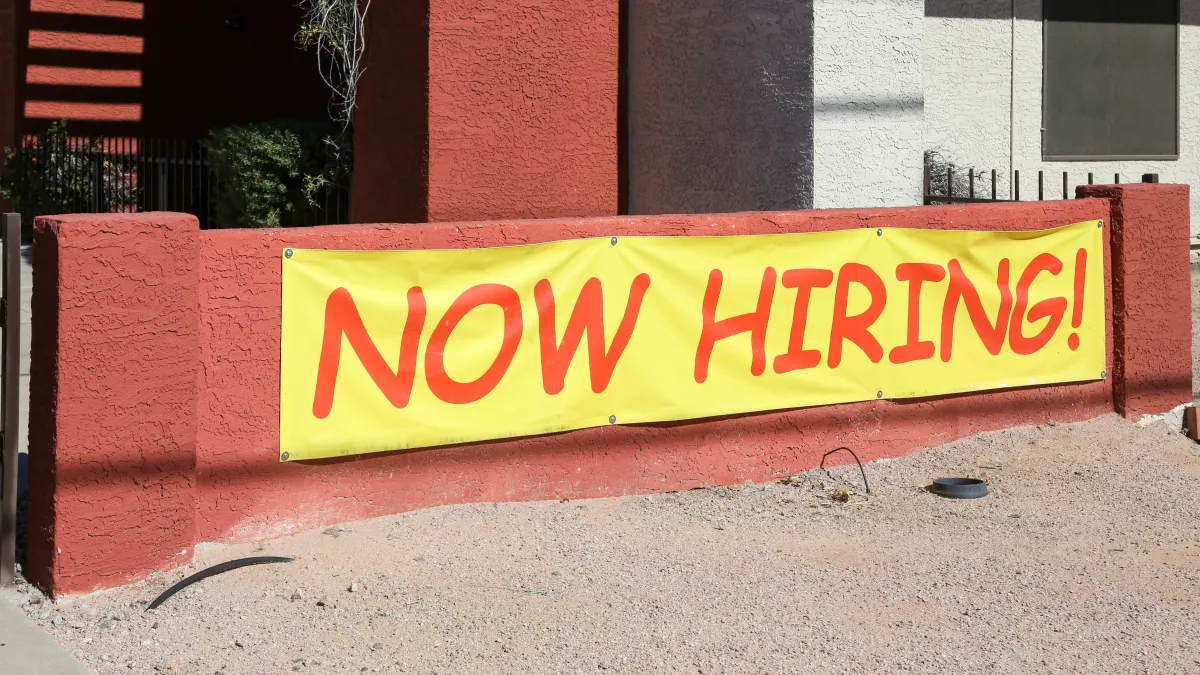
Good Tuesday evening. Mikhail Gorbachev, the former Soviet leader who presided over the end of the Cold War, has died at the age of 91. “Few leaders in the 20th century, indeed in any century, have had such a profound effect on their time,” The New York Times says. “In little more than six tumultuous years, Mr. Gorbachev lifted the Iron Curtain, decisively altering the political climate of the world.”
Here’s what else is happening.
Job Openings Rise in July, Giving Fed Room to Stay Aggressive
U.S. businesses reported 11.2 million job openings at the end of July, according to data released by the Labor Department Tuesday.
Although the labor market numbers were stable overall relative to the previous month, job openings edged higher for the first time in four months, defying expectations for continued decline. As of the end of July, there were roughly two jobs for every unemployed American, up from 1.9 jobs in June.
Persistent tightness in the labor market suggests that the Federal Reserve will hold the course on its monetary tightening campaign, making it more likely that the central bank will produce the economic “pain” of slower growth — if not an outright recession — that Fed Chair Jay Powell warned about last week.
“Demand for labor shows no sign of cooling despite the Fed’s efforts to slow it down,” economist Eliza Winger told Bloomberg. “Job openings failed to decline in July and the ratio of job openings per unemployed — one of the Fed’s preferred measures of labor-market tightness — remained near a record high. That suggests the central bank needs to keep on an aggressive rate-hike course, tipping the scale toward a 75-basis-point increase at the September FOMC meeting.”
White House Announces Another $1.5 Billion in Student Loan Debt Relief
The Biden administration will eliminate educational loan debt for students who attended Westwood College, a for-profit chain of schools that went out of business in 2016.
The debt forgiveness will be automatic and cover roughly 79,000 students who attended Westwood at multiple campuses and online between 2002 and 2015, when the school stopped enrolling new borrowers.
The debt forgiveness is part of an effort by the Biden administration to eliminate the debts of students who were defrauded by for-profit schools that deceived borrowers about their graduation rates and the salaries of their alumni, among other things. The administration has now forgiven $14.5 billion in debt, affecting about 1.1 million borrowers who attended institutions accused of fraud, including Corinthian Colleges and ITT Tech.
New Lawsuit by Patient Groups Challenges Drug Copay Rule
Three patient advocacy groups have filed a lawsuit challenging a rule introduced during the Trump administration that they say unfairly raises prescription drug costs for patients.
A rule published by the Department of Health and Human Services in 2020 allows health insurers to avoid counting the value of copay assistance from drug companies in calculations of patients’ out-of-pocket costs.
The lawsuit, filed by the HIV+Hepatitis Policy Institute, the Diabetes Leadership Council (DLC) and the Diabetes Patient Advocacy Coalition (DPAC), claims that that the rule violates federal law and contradicts the Affordable Care Act’s definition of cost-sharing. The groups say it should not matter whether the assistance comes from a friend, charity, or drug manufacturer. They say that the federal rule is “arbitrary and capricious for a whole host of reasons,” arguing that the policy leaving it up to insurers to decide how to count the copay assistance programs “is, by definition, arbitrary.”
“Patients are getting taken advantage of here,” George Huntley, chief executive officer of the Diabetes Leadership Council, told Roll Call. “Copay accumulator adjustment programs are, frankly, an evil money-grab by insurance plans and pharmacy benefit managers and are a blatant and we strongly believe illegal cost-shift back to patients.”
We'll keep an eye on the suit and any federal or industry response.
Send your feedback to yrosenberg@thefiscaltimes.com. Follow us on Twitter: @yuvalrosenberg, @mdrainey and @TheFiscalTimes. And please encourage your friends to sign up here for their own copy of this newsletter.
News
- ‘We’re Not in a Recession,’ Say Economists: Why the 11 Million Job Openings Are a Key Indicator – CNBC
- Fed Gets New Path to Go Big as Job Openings, Confidence Surprise – Bloomberg
- Patient Groups Sue HHS Over Copay Assistance Rule – Roll Call
- Biden Administration to Ask Congress to Approve $1.1 Billion Arms Sale to Taiwan – Politico
- U.S. to Clear Another $1.5 Billion in Debt for Westwood College Students – Washington Post
- Student Loan Relief Limited for Many by US Drug War’s Legacy – Associated Press
- California Advances Medical Misinformation Bill – Axios
- Paxlovid Cuts Covid Deaths Among Older People, Israeli Study Finds – New York Times
- Texas Reports First Death of Person With Monkeypox in U.S. – Axios
Views and Analysis
- Implementing Student Debt Relief Is Critical – David Dayen, American Prospect
- Want to Fix the Federal Student Loan System? Kick Out Scammy Schools – Catherine Rampell, Washington Post
- Why I Changed My Mind on Student Debt Forgiveness – Susan Dynarski, New York Times
- Why Biden’s Student Loan Bailout Will Backfire on Him – Hugh Hewitt, Washington Post
- Jerome Powell Can’t Count on a Labor Market Miracle – Jonathan Levin, Bloomberg
- Why Anthony Fauci’s Covid Legacy Is a Failure – Ari Schulman, New York Times
- Why Interest Rates Will Keep Going Up – Henry Olsen, Washington Post
- The Republicans’ Opposition to Elder Support Is Decades in the Making – Joseph Chamie, The Hill
- To Fight Monkeypox and Other Viruses, Look Harder in the Sewers – Lisa Jarvis, Bloomberg
- Why Pickleball Is the Fastest-Growing Sport in the US – Katrina vanden Heuvel, Washington Post